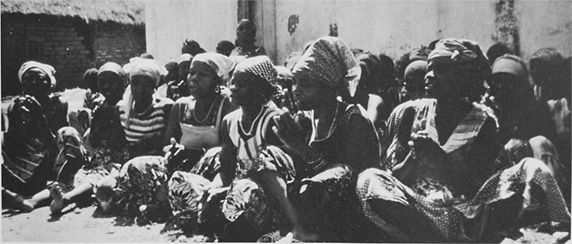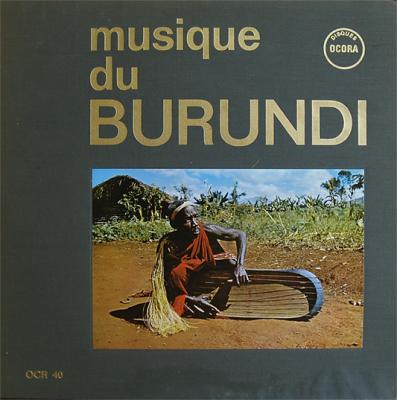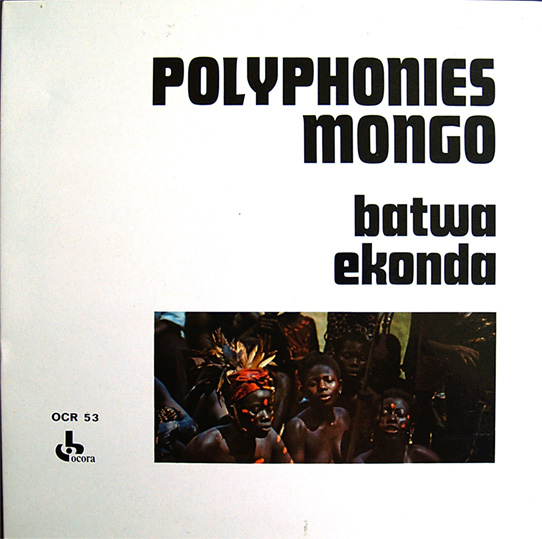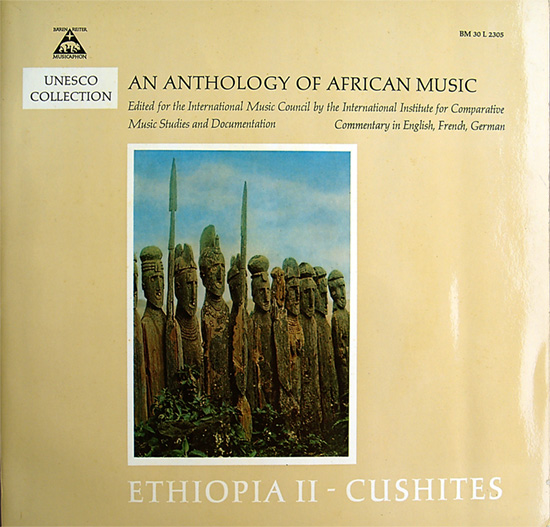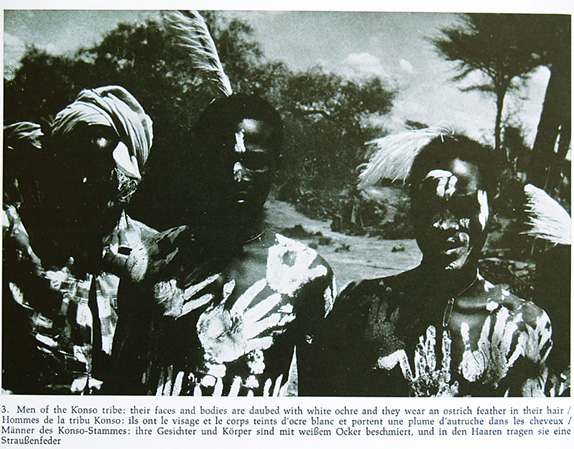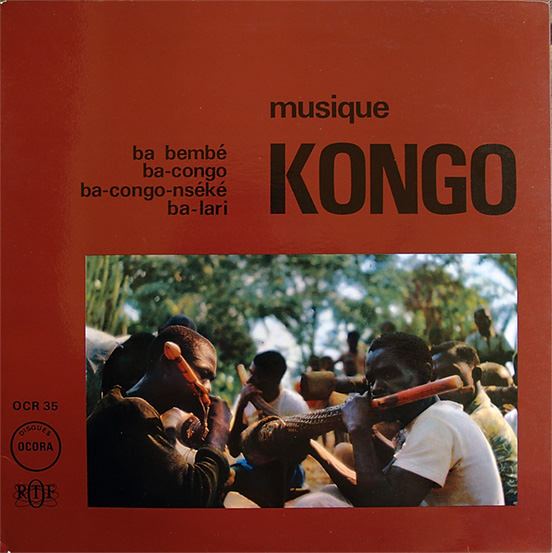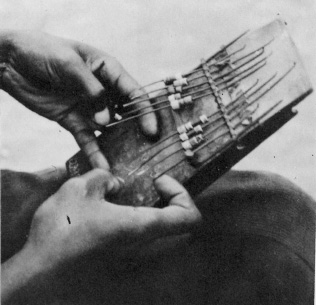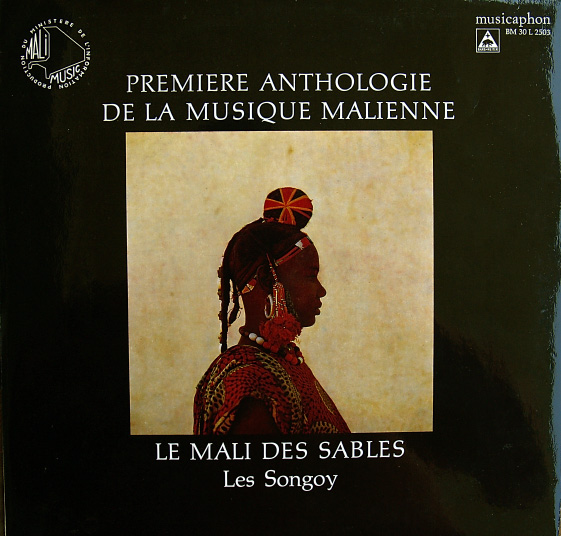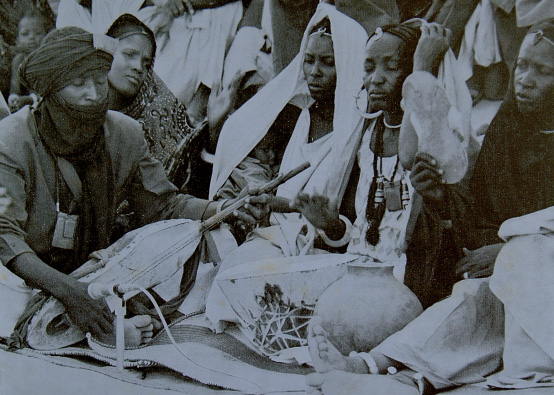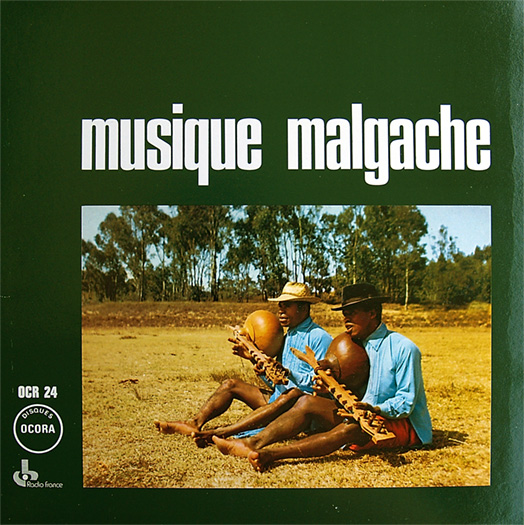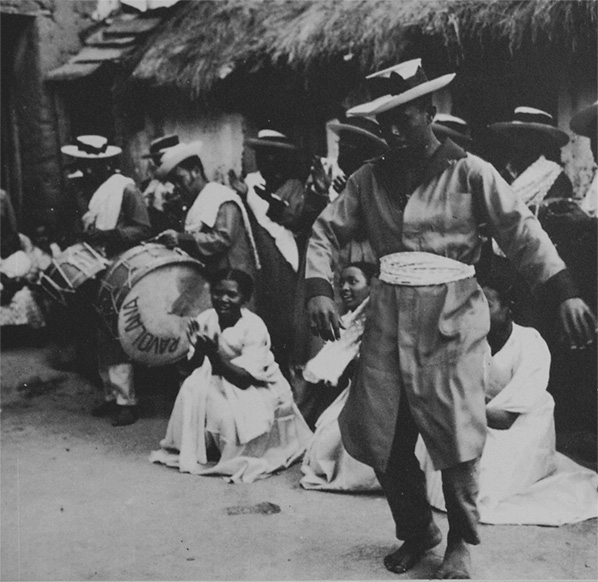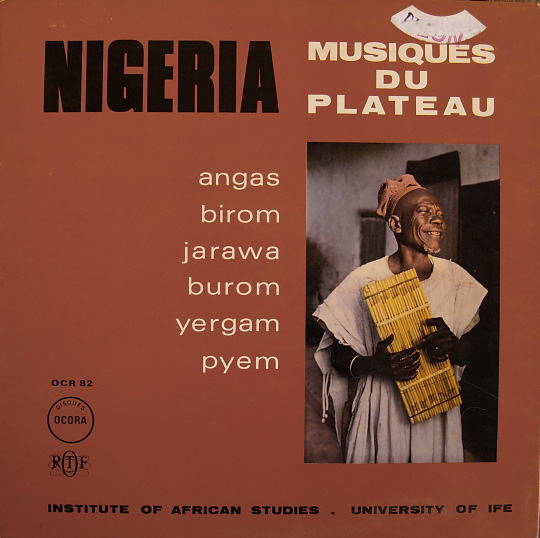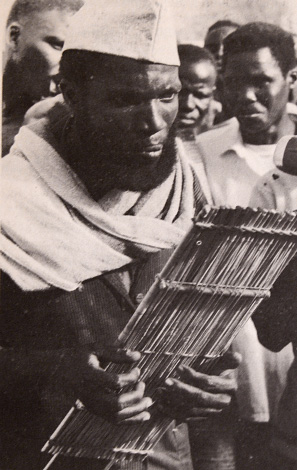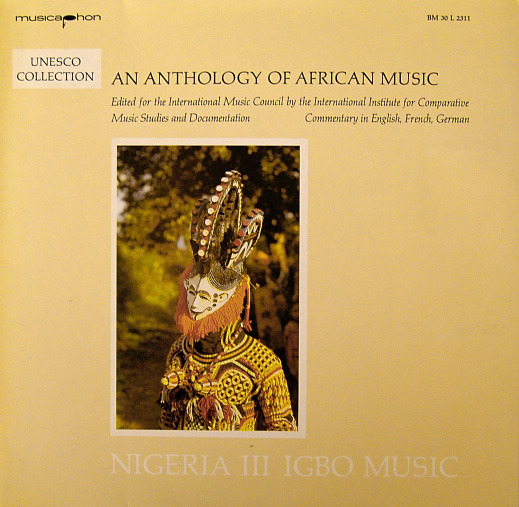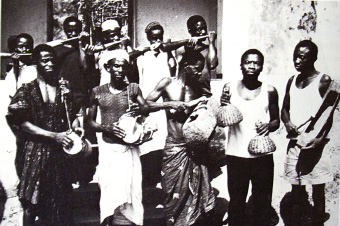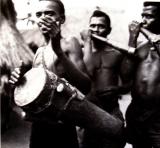joel
Painter of Dragons, Maker of Mirrors
There's a lot of music South of the Sahara, . For that reason I plan to keep individual posts here reasonably short and concise. The idea is just to provide some pointers to some areas that may be of interest, and discover new things myself.
The point of entry is Mali, and the music of the Kora. The Kora is widely used by Mandinke peoples, not just in Southern Mali, but also in Senegal, Guinea and Gambia.
Let's cut to the chase with the first Malian Kora album:

Recorded in 1970, this fetures the greatest Kora players of the period: N'Fa Diabate, Djelimadi Sissoko, Sidiki Diabate and Batrou Sekou Kouyate. The playing on this is pretty muscular, and gives the music, despite its delicacy, a sometimes surprising drive.
Ancient Strings is available CD from Buda Music .
Sadly, most of the rest of this great series has not been released on CD (at least not officially to the best of my knowledge)
Kora players are djeli - hereditary musicians, and the next CD is a nice illustration of this

New Ancient Strings on Rykodisk/Hannibal Features Ballake Sissoko and Toumani Diabate - who are the sons of Djelimadi and Sissike from the Ancient Strings record. This is a great album in its own right. Qualitative comparisons with the "original" are a bit meaningless; it is not better or worse as the album reflects two different personalities and a different era.
These two records are, IMO, the essential starting point for Malian Kora.
Toumani Diabate is also known for his collaborations over the years with artists from other countries, and recently with Ali Farka Toure. That's for the next post, though.
The point of entry is Mali, and the music of the Kora. The Kora is widely used by Mandinke peoples, not just in Southern Mali, but also in Senegal, Guinea and Gambia.
Let's cut to the chase with the first Malian Kora album:

Recorded in 1970, this fetures the greatest Kora players of the period: N'Fa Diabate, Djelimadi Sissoko, Sidiki Diabate and Batrou Sekou Kouyate. The playing on this is pretty muscular, and gives the music, despite its delicacy, a sometimes surprising drive.
Ancient Strings is available CD from Buda Music .
Sadly, most of the rest of this great series has not been released on CD (at least not officially to the best of my knowledge)
Kora players are djeli - hereditary musicians, and the next CD is a nice illustration of this

New Ancient Strings on Rykodisk/Hannibal Features Ballake Sissoko and Toumani Diabate - who are the sons of Djelimadi and Sissike from the Ancient Strings record. This is a great album in its own right. Qualitative comparisons with the "original" are a bit meaningless; it is not better or worse as the album reflects two different personalities and a different era.
These two records are, IMO, the essential starting point for Malian Kora.
Toumani Diabate is also known for his collaborations over the years with artists from other countries, and recently with Ali Farka Toure. That's for the next post, though.



